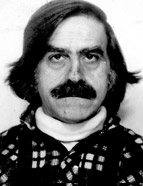

António José Saraiva, teacher and literary critic, cultural historian, theoretician of the aesthetic phenomenon, political scientist and essayist was one of the most prominent, controversial and surprising public figures in the Portuguese cultural landscape for fifty years. Both within and beyond the scope of research and teaching, he delivered conferences, granted interviews, ignited, or was at the centre of highly impactful controversies that indelibly marked the country’s cultural agenda. He was an active citizen from an early age, bearing the profile of a gifted researcher endowed with a unique theoretical and analytical insight and remarkable creative discipline, without enclosing himself in the elitist haven of highbrow culture. His varied, extensive critical activity resulted in a highly erudite and problematic work of a historical-literary, didactic, and doctrinal nature, occasionally verging on philosophical and political thought. Concomitantly, he published extensively in different newspapers and magazines, part of which was later published as a book, and attracted the readership of cultured environments and large circles. He clearly made a multifaceted cultural effort to endure a tough and frequently distressing life trajectory, a feature that should not be overlooked in view of its defining effect.
The first major segment of such trajectory, undoubtedly the most extensive and turbulent (1917-1960), included the initial cycles of primary socialisation and academic education. The impact of the former, the cycle of an urban childhood in the Extremadura province with occasional but intense rural experiences, was traceable or subtly implied like an unmistakable watermark in the convolutions of an often gruelling intellectual path. Both periods, distinct phases of human, cultural and civic growth, preceded his entry into public life and political and party engagement. Upon completion of his academic education, new contexts moulded the long period of his life in Portugal intra muros, cut short by expatriation.
As for the more distant milestones of the impressive socialisation of the historian and politician he was to become, it should be noted that having barely reached adolescence and while still at secondary school, he was challenged by and overcame his first major hurdle: Catholic traditionalism. In this diffuse moment of discovery of the world’s complex order and in view of his own strict social and family background, this was an unequivocal demonstration of autonomy, which would last for many years as a predominant trait of his character.
